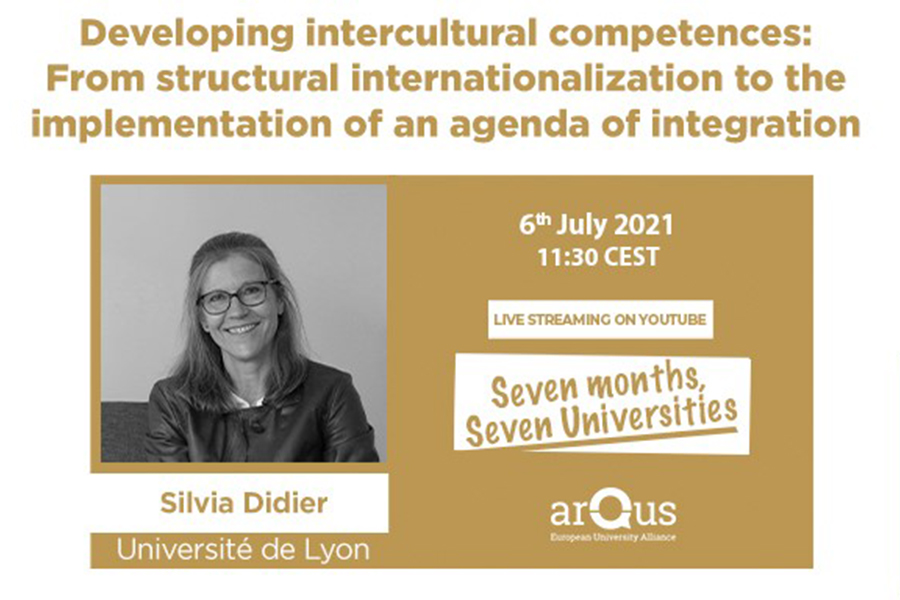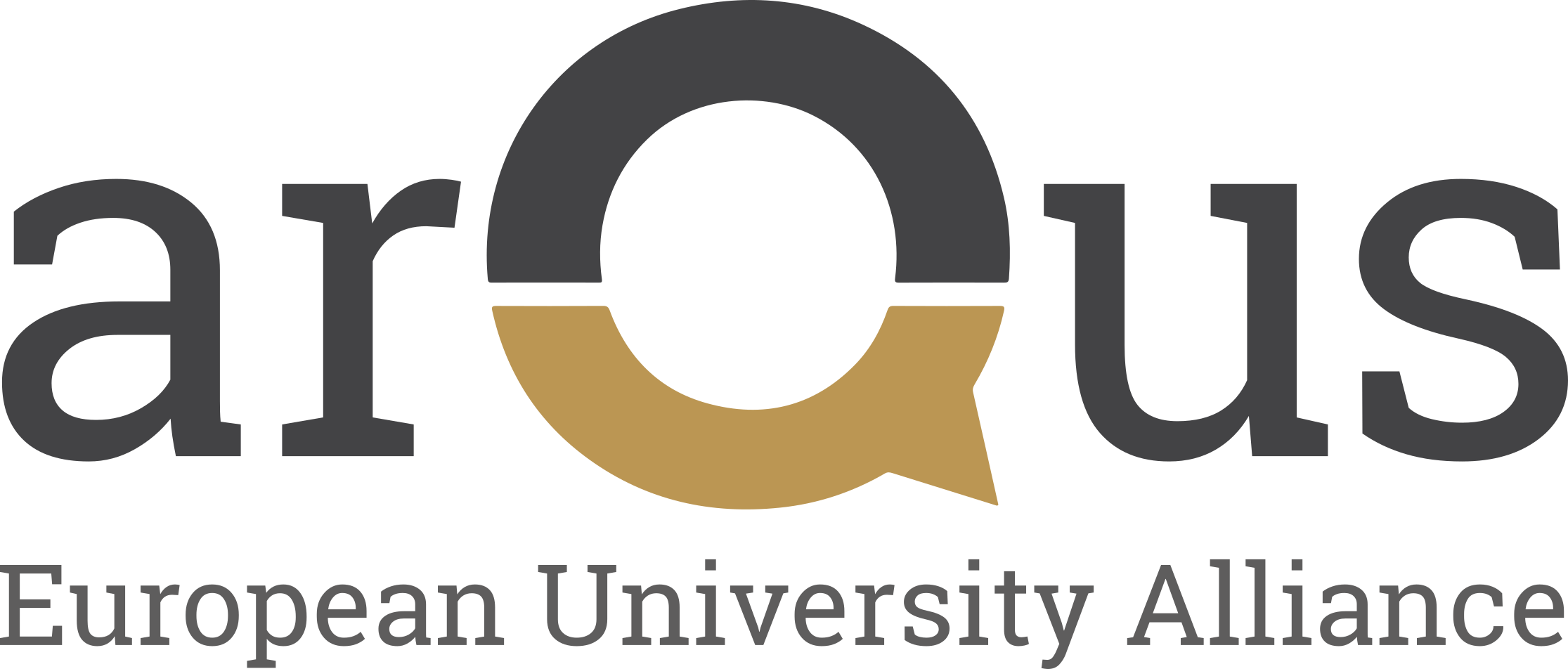ARQUS online lecture: Developing intercultural competences, by Silvia Didier, iaelyon

"Developing intercultural competences: From structural internationalization to the implementation of an agenda of integration", organized by The Arqus European University Alliance, with Silvia Didier, associate professor at iaelyon School of Management.
Structural internationalization (automatically) improves students’ satisfaction.
- Structural internationalization (automatically) yields an integrated student community.
- Structural internationalization (automatically) leads to global skills.
Developing intercultural and global skills is not simply an end at itself. Several recent reports [see reference 2 below] draw attention to the fact that employers are now seeking, demanding and expecting these global skills when hiring graduates from business schools or universities.
One of the key goals of the iaelyon is to teach and experience openness to multiple worlds. This includes the transfer of international, cross-cultural, professional and cross-disciplinary skills and competencies to students.
The case of iaelyon School of Management
In this talk, Silvia Didier will illustrate this approach by sharing and critically discussing 2 projects that have been put in place and tested at the iaelyon.
- A video project during the course « Intercultural management » with Master 1 Students in International Management.
- A Business Challenge with students from the MIB EPAS Consortium and the Masters’ in International Management.
► Learn more about the lecture
► Replay on the Arqus YouTube channel
Silvia Didier is an experienced intercultural trainer, consultant, expatriate coach and author of several books, working in a multi-national business setting. She has more than 20 years of work experience in the fields of marketing and communication, strategic consulting, intercultural training and executive coaching. Since 2013 she is working as a senior lecturer at the iaelyon School of Management – Jean Moulin University. She was codirecting the Master in International Management, was head of the Master 2 program International Business Realities and the International MBA. In 2020 she was nominated associate professor at iaelyon.
About ARQUS
The Arqus European University Alliance brings together the universities of Bergen, Granada, Graz, Leipzig, Lyon, Padua and Vilnius, seven longstanding comprehensive research universities with deep regional engagement in medium-sized cities.Arqus is a multilateral alliance of internationalized institutions who share academic, scientific and cultural objectives, a common vision of the role of higher education and research and mutual fields of interest.
► Learn more

